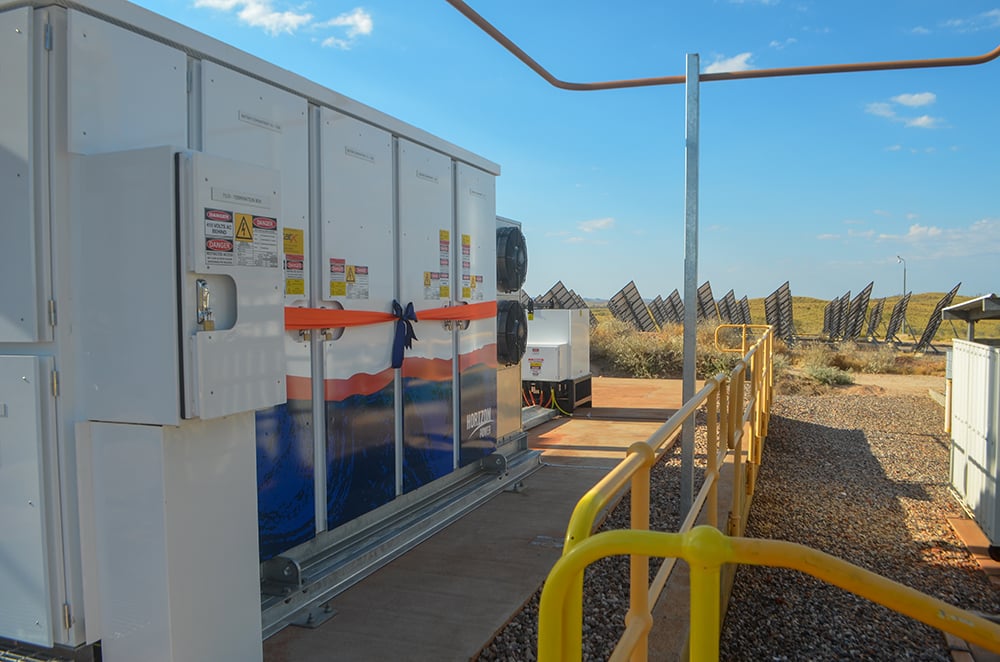
Government-backed energy storage announcements continue to roll out of Queensland, with the Australian state set to begin a ‘Neighbourhood Battery’ programme.
With the September publication of the state’s Energy and Jobs Plan, premier Annastacia Palaszczuk’s administration ramped up the decarbonisation and economic growth agenda, committing to 50% renewable energy by 2030, 70% by 2032 and 80% by 2035.
Enjoy 12 months of exclusive analysis
- Regular insight and analysis of the industry’s biggest developments
- In-depth interviews with the industry’s leading figures
- Annual digital subscription to the PV Tech Power journal
- Discounts on Solar Media’s portfolio of events, in-person and virtual
The policy includes support for developing both an upstream value chain for battery materials and manufacturing, as well as in driving downstream deployment, supporting large-scale batteries and pumped hydro energy storage (PHES). A comprehensive strategy on energy storage has also been promised.
The latest step, announced yesterday, is a AU$10 million (US$7.1 million) Energy and Jobs Plan scheme whereby 35 battery energy storage systems (BESS) will be installed across the Queensland City of Ipswich.
Two government-owned companies, electricity distributor Energex and utility generator-retailer Origin Energy have been appointed to execute the programme, following a successful trial at one of Energex’s facilities.
The sizing of the batteries, either individually or as a total for the whole project was not announced, but such battery installations in Australia have typically been under 0.5MWh capacity and 0.5MW output each.
Neighbourhood batteries are battery storage systems deployed at a community level, allowing multiple households or businesses to share the benefits of storing locally generated energy without each having to pay the upfront cost of installing a system on their own premises or distribution lines.
It’s being considered a particularly useful tool for the grid – and for reducing reliance on fossil fuels – in a country like Australia, which has among the highest adoption rates per capita for rooftop solar in the world.
Not everyone can put solar on their roof though, for whatever reason, and not everyone with solar has space or cash for a battery. Sharing a central, but distributed BESS can reduce the overall risks.
In a technical paper for our quarterly journal PV Tech Power last year, experts from Australian National University (ANU) wrote about their extensive research into neighbourhood batteries for an assessment of the technical, social and economic benefits.
The team said that neighbourhood batteries can improve the fairness of the energy system, increase local network hosting capacity and bolster resilience of the network, while they can also perform various important functions for different stakeholders.
However, various questions still remained about how they can achieve payback and who should own the systems, the ANU team wrote, concluding that the best way to incentivise neighbourhood batteries would be by discounting local use-of-network tariffs that could otherwise render them uneconomic.
One point readers may be wondering about is the use of the ‘neighbourhood’ nomenclature, when often in other countries they may have heard of ‘community batteries’ to imply a similar use case. ANU’s experts said that in their case, ‘community battery’ implies a degree of local community involvement or shared ownership, which is not always the case.
In Queensland, the battery units are expected to begin installations in the coming weeks, charging from abundant and off-peak renewable energy, mostly solar, mostly during the day, and then output that energy to the grid during peak times when it’s most needed.
The systems will be installed, owned and maintained by Energex and operated in the wholesale market by Origin Energy. Most of them (30) will be mounted on power poles, while the remainder will be ground-level installations, all connected to the low-voltage distribution network.
The systems will be made by local companies Pixii and Ecojoule.
Areas with highest rooftop solar PV uptake were prioritised to get the battery systems.
“Because Queenslanders kept their energy assets in public hands, these neighbourhood batteries not only help our local communities, but they are owned by them,” local politician for the Ipswich area Jennifer Howard said.
Energy-Storage.news’ publisher Solar Media will host the 1st Energy Storage Summit Asia, 11-12 July 2023 in Singapore. The event will help give clarity on this nascent, yet quickly growing market, bringing together a community of credible independent generators, policymakers, banks, funds, off-takers and technology providers. For more information, go to the website.






